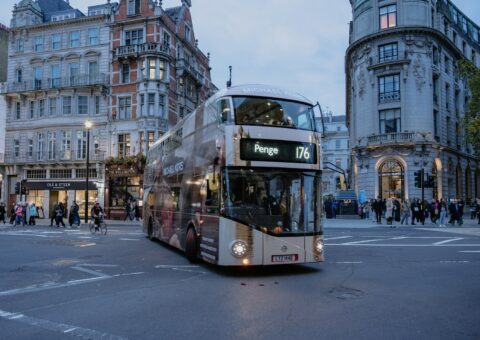Has the pandemic sparked business travel’s inevitable demise? Not likely. Though the landscape of business travel is bound to look different in a post-COVID world, there are still elements of your organization where it’s better to conduct business face to face.
Despite natural (and completely legitimate) concerns around travel, U.S. domestic business travel is only 75% off its pre-pandemic peak. And a similar resurgence is sprouting in the UK and Europe: trains are back and commutes have the go-ahead, only now businesses are looking to be more economical with how they move around.
For example, Dutch bank ABN Amro plans to halve its air travel, going as far as banning flights between its European offices, instructing employees to instead use alternative train links — so where exactly does this leave business travel and its future trends?
In this article, we explore what essential business travel means post-pandemic, suggest how the landscape could change, and provide some handy tips on improving the way you travel.

Post-COVID business travel: is it still essential?
Yes, the pandemic will pass (eventually) — but should everything go back to normal? Good and bad, many things have been learned over the last year or so. Of which, remote working might be the most evolutionary for businesses in a post-COVID world.
With remote working being standard practice, demand for business travel could be diminishing, particularly considering an opinion piece published by Bloomberg that argues the pandemic proves how much work can be done over the internet.
Could Bloomberg writer Joe Nocera be right? After all, typical reasons for business travel such as client meetups can simply be done over Zoom or Google Meetups. Not only might it be costly to turn certain activities into business trips, but it also disrupts productivity when key members of the team are away from the office.
However, there are many reasons to travel for business purposes, with conferences, trade shows, and important client pitches among them. Although it could be worthwhile sifting through your calendar in the future, saving travel for events that warrant such expense.
What business travel looks like post-COVID (simple travel tips)
While many businesses are looking forward to more opportunities to travel, the trends may differ in a post-COVID world. Here are some simple travel tips to help prepare:
Book high-quality short-term rentals
One business travel trend, likely influenced by pandemic restrictions, is anxiety around booking traditional accommodation, such as hotels, bed & breakfasts, and so forth. This is because many professionals don’t like the idea of staying in a small space, particularly if their job requires them to relocate for long periods.
FinancesOnline observes many millennial professionals (74%) now stay in vacation rentals when traveling for work. These more non-traditional accommodations maximize comfort, helping you focus on work, and potentially keep you out of the way of post-COVID holidaymakers.
You can find plenty of high-quality temporary accommodation examples at Homelike. This service offers over 85,000 temporary rentals across Europe — so you can find great apartments to live and thrive in while traveling around the continent for business.

Adopt better road travel budgeting with fuel cards
Budgeting is a top priority for any business experiencing turbulence caused by recent economic uncertainty. While this doesn’t mean business travel is off the table, you do need to ensure resulting expenses are properly planned and moderated.
Among a list of important expenses, road travel stands out. Why? Because running a vehicle takes an enormous, yet inevitable, toll on your business’s travel budget. After all, fuel is an expensive resource people rely on to get from A to B.
While you cannot bypass fuel costs when traveling, you can place a sensible cap on things. For many businesses, fuel cards are an option for saving and controlling road travel expenses. Essentially a credit card used to pay for fuel, these tools can be used across Europe to qualify for small discounts and budget better, using reporting data sent to bespoke applications accessible to the business. These account management tools allow you to view transactions made by the driver and receive reports on fuel usage (miles per gallon and other telematics) to help analyze and control fuel expenditure.
This means you (or your employees) never have to pay for road travel costs out of pocket. All transactions are charged to the linked business account and digitally recorded, which means your travel budget is always visible and carefully monitored.
While business travel certainly isn’t facing its inevitable demise, there is clear evidence showing the landscape is changing in a post-COVID world. No longer are businesses willing to travel in excess of what they need. Instead, budgeting, productivity, and economical efficiency, and environmental responsibility glean the highest reward.
As such, your business can also look to improve and get savvier when it comes to travel. From booking high-quality temporary accommodation to tracking expenses with fuel cards — this is how you squeeze the most value from your corporate trip.
Written by Laura May at justanothermagazine.com























